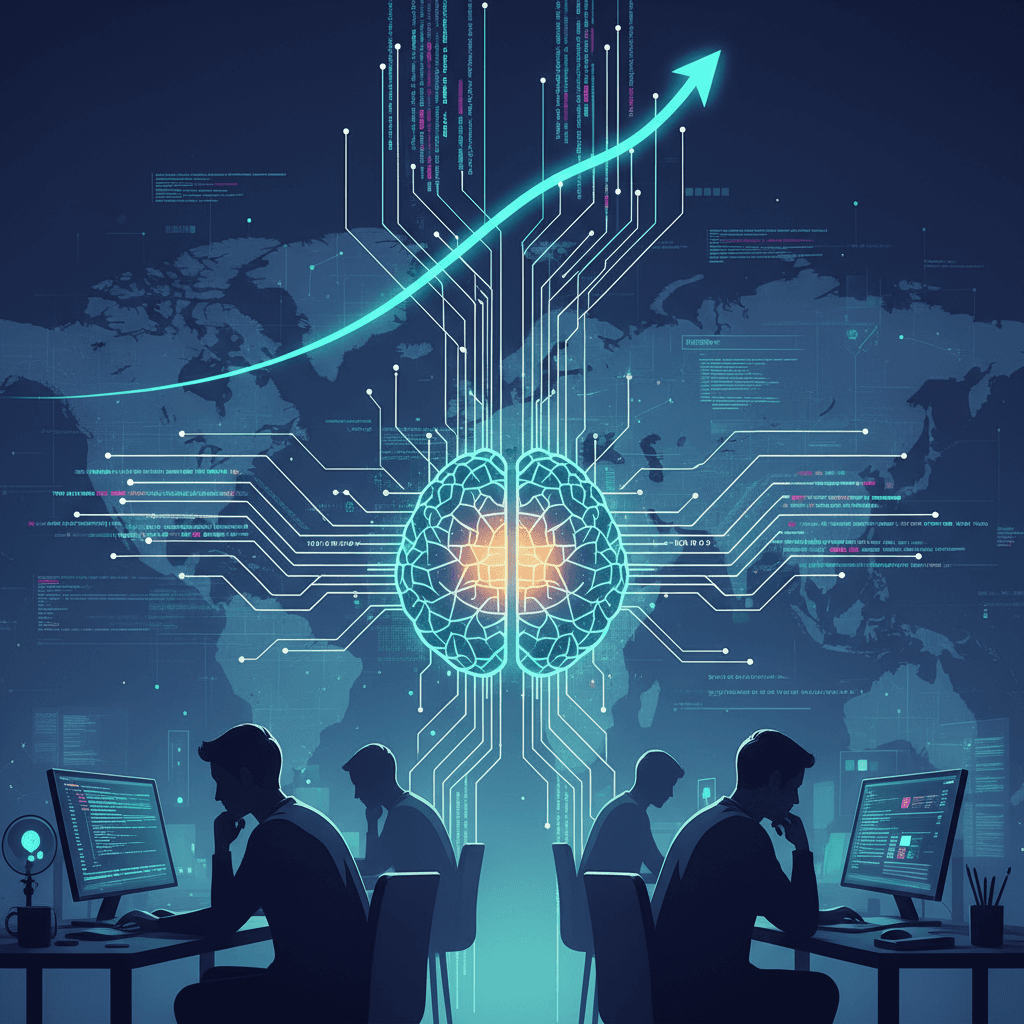OpenAI AI Conquers Programming Olympics: Perfect Score Outshines All Human Teams
AI masters the world's toughest programming contest, signaling profound shifts for software development and education.
September 17, 2025

A new frontier in artificial intelligence and human ingenuity has been charted at the world's most prestigious collegiate programming contest. An AI system developed by OpenAI has achieved a perfect score at the International Collegiate Programming Contest (ICPC) World Finals, solving all 12 algorithmic challenges presented to competitors. This unprecedented feat not only surpassed the performance of the top human teams but also edged out a formidable AI rival from Google's DeepMind, signaling a pivotal moment in the evolution of automated reasoning and problem-solving.
The ICPC, often dubbed the "Olympics of programming," brings together the brightest young minds from universities across the globe for a grueling five-hour battle of logic, speed, and precision.[1] At the 2025 World Finals held in Baku, Azerbaijan, an AI system from OpenAI competed under the same stringent conditions as the human participants, receiving the problem set in a standard PDF format and submitting its solutions to an official ICPC judge.[2] The result was a flawless run, a perfect 12 for 12, a score that would have secured a decisive first place had it been an official team.[2] This accomplishment is a stark indicator of the rapid advancements in AI's capacity for complex, multi-step reasoning that has long been the domain of elite human programmers.
The victorious human team from St. Petersburg State University, who were crowned the 2025 ICPC World Champions, managed to solve an impressive 11 out of the 12 problems.[3][4][5][6][7] This highlights the sheer difficulty of the challenge and places the AI's perfect score in stark relief. Close behind the human champions was Google's own advanced AI, Gemini 2.5 Deep Think, which secured a gold-medal level performance by correctly solving 10 of the 12 problems.[8] Gemini's performance was notable in its own right, as it successfully tackled "Problem C," a challenge that stumped every human team in the competition.[2] The contest problems spanned a range of complex algorithmic domains, from graph theory and dynamic programming to intricate logical puzzles requiring novel approaches.[8][9][10]
The technological approaches of the two AI giants differed in their specifics but shared a common goal of achieving more general problem-solving intelligence. OpenAI's solution was an ensemble of models: the recently announced GPT-5 generated numerous potential solutions for each problem, while a specialized, experimental reasoning model acted as a selector, choosing the most promising candidate to submit.[2][11] This two-part system proved incredibly effective, with GPT-5 finding correct answers for the first 11 problems and the experimental model cracking the final, most difficult one on its own.[2] Google's Gemini 2.5 Deep Think, on the other hand, functioned more like an automated team of AI agents.[12] Multiple Gemini agents would propose and test their own solutions, iterating and building upon each other's attempts to converge on a correct answer.[12] While this method secured a strong result, OpenAI's combination of a powerful generator and a discerning selector ultimately achieved perfection.
The implications of this milestone reverberate far beyond the competitive programming community, prompting both excitement and critical examination within the broader tech industry and academia. For software development, the demonstration of an AI that can outperform top human coders on complex, novel problems suggests a future where AI acts not just as an assistant for routine tasks but as a genuine collaborator in solving profound engineering challenges.[13] Proponents argue this could accelerate innovation in fields like drug discovery and microchip design, where similar logical reasoning skills are paramount.[13][12] However, this rapid progress also fuels discussions about the future of software engineering roles and the potential for job displacement.[14][15] Some experts remain skeptical, cautioning that performance in a structured competition doesn't immediately translate to the messy, collaborative, and constantly evolving nature of real-world software development.[16] The high cost and resource intensity of running these advanced models also present a barrier to widespread, immediate adoption.[17]
This breakthrough also poses fundamental questions for computer science education.[18] As AI tools become increasingly capable of writing and debugging complex code, the focus of education may need to shift from the mechanics of coding to higher-level skills like problem decomposition, system design, and the ethical application of AI.[18] An experiment at MIT demonstrated that while students using ChatGPT could solve a programming problem in an unfamiliar language faster, they retained less of what they learned compared to those who had to struggle and break down the problem themselves.[18] This suggests that while AI can be a powerful tool, a foundational understanding of programming principles remains critical. The performance of the AI systems at the ICPC underscores the need for curricula to adapt, preparing students for a future where they will work alongside, and be augmented by, highly capable artificial intelligence.
In conclusion, OpenAI's perfect score at the ICPC World Finals represents more than just a victory in a competition; it is a landmark achievement that clearly demonstrates the accelerating progress in artificial general intelligence. By solving problems that challenge the world's most brilliant student programmers, AI has crossed a significant threshold. While the immediate, practical impact on the software industry and education is still unfolding, the event in Baku has undeniably set a new benchmark. The future of programming, and indeed all knowledge work, will be shaped by the continued development of these powerful reasoning engines, forcing a re-evaluation of the roles of human creativity and expertise in an increasingly automated world. The collaboration and competition between humans and AI, as well as between different AI systems, will undoubtedly continue to push the boundaries of what is possible.
Sources
[1]
[3]
[4]
[5]
[6]
[7]
[9]
[10]
[11]
[12]
[13]
[14]
[16]
[17]
[18]